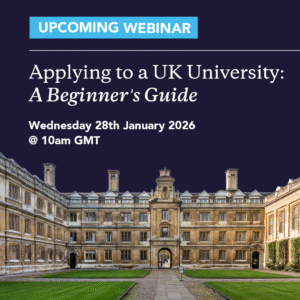Comparing the UK and Cambodian Education Systems: A Guide for Cambodian Students
19th May 25

Introduction: Why Cambodian Students Choose the UK for Education
An increasing number of Cambodian students are seeking international education opportunities, with the UK standing out as a premier destination. Renowned for its academic excellence, emphasis on independent learning, and globally recognized qualifications, the UK offers Cambodian students a pathway to broaden their horizons and achieve their academic aspirations.
This guide provides a detailed comparison between the UK and Cambodian education systems, highlighting key differences and similarities to assist Cambodian students in making informed decisions about studying abroad.

Understanding the UK Education System
The UK education system is structured to foster critical thinking, independent research skills, and subject specialization. It is divided into distinct stages:
1. Primary and Secondary Education (Ages 5–16)
-
Duration: 11 years (Key Stages 1–4)
-
Curriculum: A broad range of subjects, including English, Mathematics, Science, History, Geography, Arts, and Languages.
-
Assessment:
-
Standardized assessments at ages 7 and 11
-
General Certificate of Secondary Education (GCSE) exams at age 16, typically covering 8–10 subjects
-
-
Qualification Awarded: GCSE
2. Post-16 Education (Ages 16–18)
UK students specialize in subjects aligning with their career aspirations:
-
A-Levels (2-year program): Ideal for students aiming for top universities.
-
International Foundation Programme (IFP, 1-year): A fast-track pathway to university in fields like Business, Engineering, Medicine, and Arts.
-
BTEC Diploma: A coursework-based qualification focusing on practical skills in areas such as Business, Media, and IT.
3. University Education in the UK (Ages 18+)
-
Duration: 3–4 years for a bachelor’s degree
-
Entry Requirements: A-Levels, IFP, or BTEC qualifications
-
Teaching Style: Emphasis on independent research, project-based learning, and professional skill development

Understanding the Cambodian Education System
Cambodia’s education system has undergone significant reforms, aiming to improve access and quality. The system is structured as follows:
1. Pre-Primary Education (Ages 3–5)
-
Kindergarten: Focus on basic literacy, numeracy, and social skills.
2. Primary Education (Grades 1–6, Ages 6–12)
-
Curriculum: Subjects include Khmer language, Mathematics, Science, Social Studies, and Moral/Civic Education.
-
Assessment: National examinations at the end of Grade 6 to transition to lower secondary education.
3. Lower Secondary Education (Grades 7–9, Ages 12–15)
-
Curriculum: Continuation of primary subjects with the addition of foreign languages and vocational skills.
-
Assessment: National examinations at the end of Grade 9 for progression to upper secondary education.
4. Upper Secondary Education (Grades 10–12, Ages 15–18)
-
Curriculum: Specialization in Science or Social Science streams.
-
Assessment: National High School Diploma Examination (Bac II) at the end of Grade 12, determining university eligibility.
5. Higher Education
-
Institutions: Public and private universities offering bachelor’s, master’s, and doctoral programs.
-
Admission: Based on Bac II results and entrance examinations.
-
Challenges: Issues include limited resources, quality assurance, and alignment with labor market needs.
Cambodia vs. UK: Education Structure Comparison Table
| Cambodia | United Kingdom |
|---|---|
| Pre-Primary (Ages 3–5) | Kindergarten |
| Primary (Grades 1–6) | Ages 6–12 |
| Lower Secondary (Grades 7–9) | Ages 12–15 |
| Upper Secondary (Grades 10–12) | Ages 15–18 |
| Post-16 Education | Not distinct; part of upper secondary |
| Higher Education | Bachelor’s (4 years) |

Key Differences at a Glance
-
Curriculum Flexibility: UK students specialize earlier, choosing subjects that align with their interests and career goals.
-
Assessment Methods: The UK employs a combination of coursework and examinations, whereas Cambodia relies heavily on final national exams.
-
Language of Instruction: English is the primary medium in the UK; in Cambodia, Khmer is predominant, with increasing emphasis on English proficiency.
-
Higher Education Pathways: The UK offers diverse pathways, including vocational qualifications and foundation programs, providing multiple routes to university education.
Why Cambodian Students Thrive in the UK
Studying in the UK presents Cambodian students with opportunities to engage in a dynamic learning environment that emphasizes critical thinking, creativity, and independence. The global recognition of UK qualifications enhances employability prospects and opens doors to international career paths.
Institutions like Abbey DLD Colleges provide tailored support for international students, ensuring a smooth transition and a nurturing academic experience.
Final Thoughts
Understanding the distinctions between the Cambodian and UK education systems enables students to make informed decisions about their academic futures. The UK’s emphasis on specialization, diverse educational pathways, and global recognition makes it an attractive destination for Cambodian students aspiring to broaden their academic and professional horizons.
Blog Author

Joyce Zhao
Regional Manager, Asia
Tel: +86 15821515886
Get in Touch Today
Want to learn more about studying at Abbey DLD Colleges? Contact us today, and one of our admissions advisors will guide you through the application process!
Studying in the UK is more than just education; it’s a life-changing experience that will shape your future. Start your journey today!




